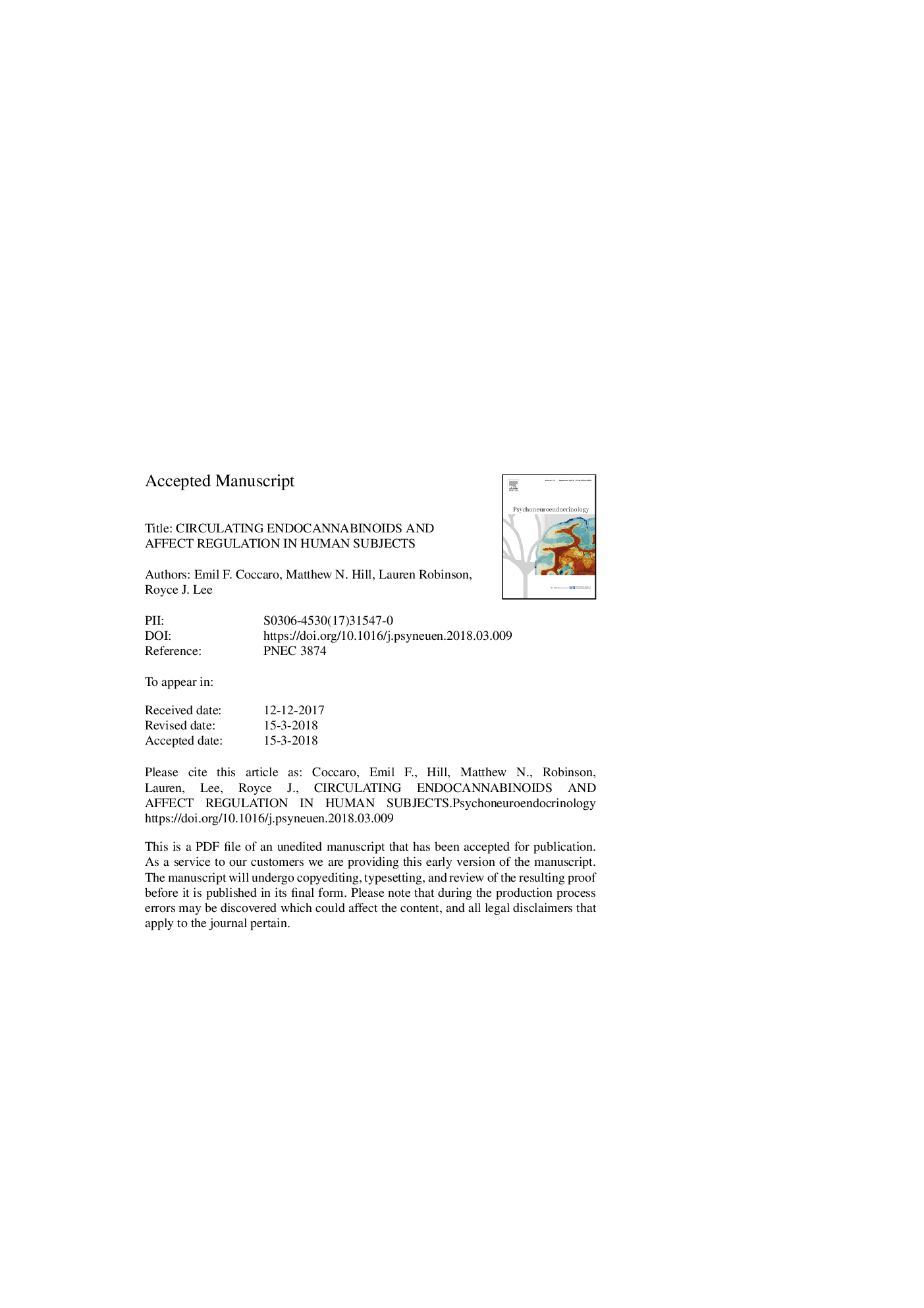| Article ID | Journal | Published Year | Pages | File Type |
|---|---|---|---|---|
| 6817630 | Psychoneuroendocrinology | 2018 | 31 Pages |
Abstract
The endocannabinoid (EC) system influences a wide variety of neurobiological processes including affect and emotionality as well as other neuropsychiatric functions. In this study we examined the relationship of circulating endocannabinoids [anandamide (AEA) and 2-arachidonoylglycerol (2-AG)] with affect and emotionality in 175 individuals with (nâ¯=â¯115) and without (nâ¯=â¯60) mood, anxiety, and/or personality disorders. Circulating AEA levels displayed a modest, though statistically significant, inverse relationship with a composite measure of affect regulation (βâ¯=â¯ââ¯0.264, pâ¯=â¯0.009), due to its relationship with affect intensity (βâ¯=â¯ââ¯0.225, pâ¯=â¯0.021) across all study participants. Neither AEA nor 2-AG level differed as a function of any syndromal/personality disorder and neither correlated significantly with state depression or state anxiety scores. These data suggest that circulating levels endocannabinoids may play a role in emotionality across individuals regardless of defined psychiatric disorder.
Related Topics
Life Sciences
Biochemistry, Genetics and Molecular Biology
Endocrinology
Authors
Emil F. Coccaro, Matthew N. Hill, Lauren Robinson, Royce J. Lee,
